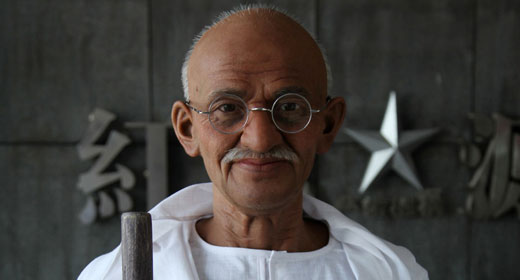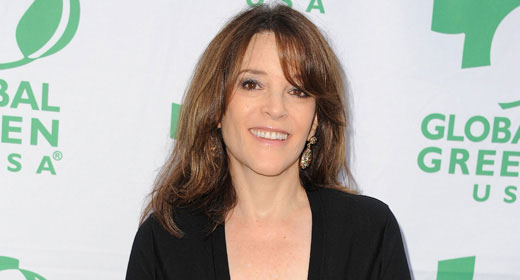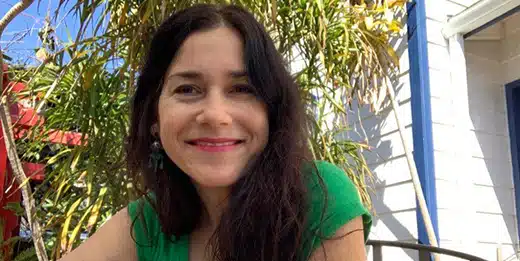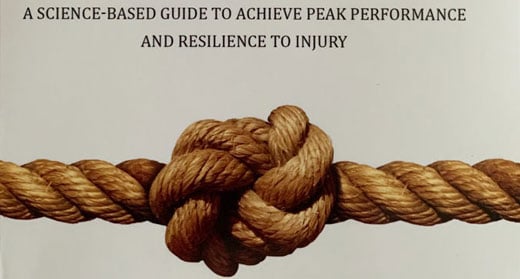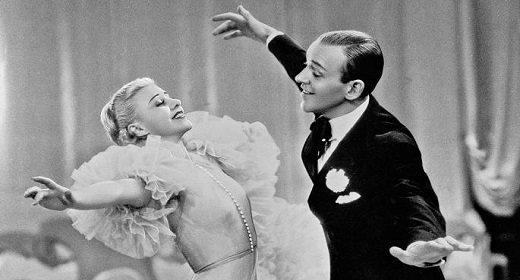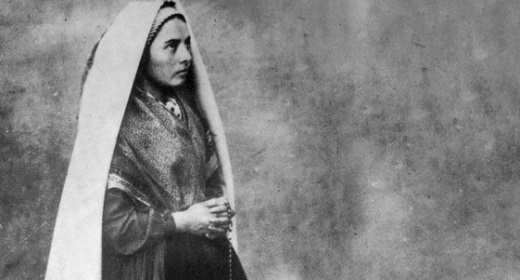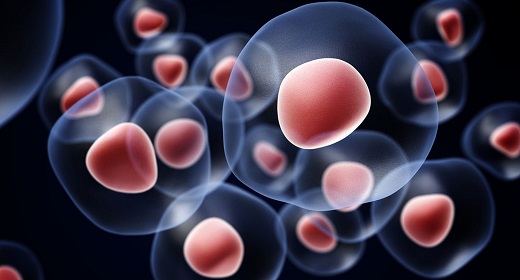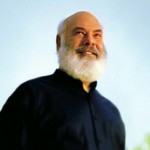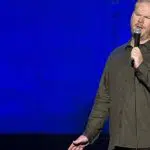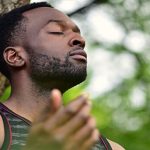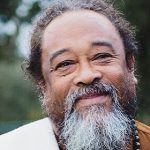An interview with Dan Millman, by Craig Hamilton: When a review copy of Dan Millman’s latest book, Everyday Enlightenment,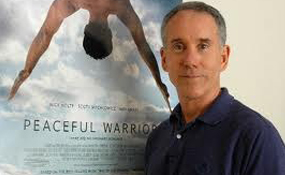 showed up in my in-box last fall, my first thought was: “Not another book detailing the deep spiritual lessons to be learned from cooking, driving and pet ownership!” Already somewhat familiar with Millman’s career as an eclectic and popular inspirational speaker and author of two successful Castanedaesque spiritual novels, a series of self-help books and a recent stint offering numerological personal destiny consultation by mail, I too quickly assumed that his views on “everyday” spirituality would follow the now well-worn groove of recent books championing the inherently spiritual nature of even the most mundane aspects of daily life.
showed up in my in-box last fall, my first thought was: “Not another book detailing the deep spiritual lessons to be learned from cooking, driving and pet ownership!” Already somewhat familiar with Millman’s career as an eclectic and popular inspirational speaker and author of two successful Castanedaesque spiritual novels, a series of self-help books and a recent stint offering numerological personal destiny consultation by mail, I too quickly assumed that his views on “everyday” spirituality would follow the now well-worn groove of recent books championing the inherently spiritual nature of even the most mundane aspects of daily life.
Upon taking a closer look at Millman’s book, however, I soon found that his “everyday enlightenment” was not only a radical departure from conventional notions of everyday life as a spiritual practice, it also had intriguing implications for our exploration of the relationship between enlightenment and self-mastery. For in what may be a completely unique marriage of these two divergent approaches to transformation, Millman’s book makes the claim that enlightenment, like any other pursuit, can be practiced—directly, consciously and methodically—through the exertion of will, self-discipline and a one-pointed focus on action.
In Millman’s view, the “Eastern solution” has run up against some limits in the modern West. Aiming for the lofty heights of spiritual experience, he points out, many contemporary seekers have almost entirely neglected the practical dimension of life, the world of day-to-day activity in which who we are is always revealed by what we do. Equally problematic, he feels, is the popular psychotherapeutic paradigm now pervading many contemporary spiritual approaches, in which an overemphasis on feeling better and “fixing our insides” has given rise to a widespread victim mentality, with the result that almost no one takes seriously the possibility of radically transforming themselves through a conscious act of will. The antidote? “To change the course of your life,” he writes, “choose one of two basic methods:
1. You can direct your energy and attention toward trying to fix your mind, find your focus, affirm your power, free your emotions, and visualize positive outcomes so that you can finally develop the confidence to display the courage to discover the determination to make the commitment to feel sufficiently motivated to do what it is you need to do.
2. Or you can just do it.”
In the passionate argot of the Self Masters, this call to “just do it” seems to hold a central if not universally revered position. Indeed, during my brief survey of the often exhausting terrain of self-mastery, I had come to see this powerful exhortation to abandon all hesitation in the pursuit of one’s goal as almost a kind of Self Master’s credo. But what appeared to set Millman apart from his fellow titans of positivity was his attempt to bring this mantra of athletic shoe advertising to bear on the loftiest of spiritual pursuits. Drawing on principles he learned from an innovative Japanese psychiatric method known as “Morita Therapy,” Millman has created what he calls “the practice of enlightenment,” a radical new approach to spiritual life in which all of one’s energy and attention are directed not toward trying to bring about any internal shift of consciousness, but toward doing whatever it takes to “act as if”one were enlightened. He writes: “For most people, enlightenment requires that you work from the inside out, first clearing your body and psyche, which then enables you to behave in an enlightened way. I propose that you can work from the outside in. Behaviorcan precede realization. You can fake it ’til you make it; just do it until more enlightened behavior becomes a habit.” When confronted with any situation, Millman suggests repeatedly, simply ask your self, “What would an enlightened person do under these circumstances?”—and then do that. That’s the practice.
as almost a kind of Self Master’s credo. But what appeared to set Millman apart from his fellow titans of positivity was his attempt to bring this mantra of athletic shoe advertising to bear on the loftiest of spiritual pursuits. Drawing on principles he learned from an innovative Japanese psychiatric method known as “Morita Therapy,” Millman has created what he calls “the practice of enlightenment,” a radical new approach to spiritual life in which all of one’s energy and attention are directed not toward trying to bring about any internal shift of consciousness, but toward doing whatever it takes to “act as if”one were enlightened. He writes: “For most people, enlightenment requires that you work from the inside out, first clearing your body and psyche, which then enables you to behave in an enlightened way. I propose that you can work from the outside in. Behaviorcan precede realization. You can fake it ’til you make it; just do it until more enlightened behavior becomes a habit.” When confronted with any situation, Millman suggests repeatedly, simply ask your self, “What would an enlightened person do under these circumstances?”—and then do that. That’s the practice.
Upon first encountering Millman’s radical view, I was immediately struck by its clarity, simplicity and doubtless logic. Indeed, it was precisely this kind of straightforward, down-to-earth, results-oriented focus that had sparked our interest in self-mastery in the first place, and had caused us to wonder what the Self Masters might have to offer to seekers of enlightenment. In putting the entire focus of his teachings on the realm of action, Millman seemed to be effectively doing away with the entire domain of internal complexity—the tangled knot of mixed motivations, conditioned responses and rigidly held ideas that most seekers struggle for years if not lifetimes to unwind. If Millman’s approach really worked, I mused, it would turn the conventional paradigm of spiritual practice and pursuit on its head.
Unique among the Self Masters we spoke with, Millman—a former champion gymnast—was at one time in his life also a serious spiritual seeker. Spurred onto the path by an overwhelming experience of transcendent unity in his twenties, he “tried meditation and visualization, seminars, soul-searching and self-analysis,” eventually spending several years under the guidance of such powerful and controversial teachers as Da Free John and Oscar Ichazo “seeking to recapture that sense of unity and divine perfection.” But while his far-ranging quest did bring him “insights and experiences,” Millman never found his way back to the “simple illumination” that had inspired his search—choosing in the end to devote his life to “shar[ing] with others . . . what [he] had learned” during his years on the path.
I spoke with Dan Millman last fall at his bright blue suburban home—”the one with the painted rainbow over the garage”—in Marin County, California, spiritual mecca of the West Coast. Throughout our discussion, Millman was, as expected, articulate and insightful, bringing his unusually practical perspective to my questions on the relationship between self-mastery and enlightenment. It occurred to me in the course of our dialogue, that among the individuals we encountered in our inquiry into this dynamic subject, Millman seems to occupy a unique position. For while, unlike the other Self Masters we spoke with, he is clearly a champion of the spiritual dimension of life—writing books intended to uplift others to their own higher potentials, and speaking boldly about enlightenment before mass audiences around the world—at the same time, in his almost singular emphasis on will, self-discipline and the power of committed action, his work seems to be firmly anchored in the down-to-earth domain of self-mastery. In attempting to bring these two all-consuming, yet seemingly divergent approaches together under one roof, has Dan Millman created a teaching that risks losing the powerful transformative potential of both? Or has this champion-gymnast-turned-spiritual-teacher actually come up with, as he himself boldly declares, “the highest practice any human being can do”?
Interview
WIE: What is your definition of “self-mastery”?
Dan Millman: Self-mastery involves recognizing what we are notresponsible for—the thoughts that enter our mind and flow out, and the emotions that pass like the weather—and what we areresponsible for, which is our behavior. My view of self-mastery focuses on acting with kindness whether or not we’re in the mood, based on three principles: Accept your emotions; know your purpose; and then do what needs to be done—whether or not you happen to feel like it at the time.
You see, we humans are filled with tendencies. We tend to be lazy or to overwork. We tend to let our emotions drive our behavior. We tend to indulge or to deny ourselves. We tend to be passive or aggressive, lackadaisical or obsessive, to act without thinking or to think without acting. We tend to deny or avoid dealing with problems until the eleventh hour or a crisis. We tend to be self—centered, defensive and resentful.
Daily life—spiritual life—tests us, teaches us, challenges us to transcend our tendencies by observing the consequences of our actions; it’s a natural, evolutionary process of living and learning. And self-mastery occurs in those moments when we subordinate our little will—our personal tendencies and preferences—to the dominion of our higher will, higher self, higher integrity or higher ideals. It’s a conscious movement from “What’s in it for me?” to “What will serve the highest good of all involved?” George Bernard Shaw put it well when he said, “Forget about likes and dislikes. They are of no consequence. Just do what must be done. This may not be happiness, but it is greatness.”
WIE: And how would you define “enlightenment”?
DM: Arbitrarily we can say that there are two realities: a transcendent reality and a conventional reality. For example, the idea that “we are all One” is certainly not true from a conventional viewpoint. If I stub my toe, it doesn’t hurt you. If I have a feeling or a thought, you may not have the same feeling or thought. So conventionally speaking, we’re separate individuated beings, physically, emotionally and mentally. But transcendentally speaking, from the viewpoint of higher truth, we’re one awareness shining through all these different gift wrappings, these different eyes. At that level, we’re One. So there are different truths operating at these different levels.
Now if we’re talking about enlightenment, traditionally speaking, it’s a transcendent matter that has nothing to do with fixing one’s personality, making things work, succeeding, reaching worldly goals, or even with achieving self-mastery. It’s realizing who we are, and it’s been described in many different ways, such as seeing life from the bigger picture, from a viewpoint at the ends of the universe, through the eyes of God—or as a sense of communion, unity and freedom. But really it’s beyond words, which is why it’s been described in so many different ways. Lao Tzu said, “He who knows does not speak. He who speaks does not know,” because we can only point to it. And I’ve had glimpses of that transcendent state.
But I would add to that cosmic or transcendent view of enlightenment beyond the mind, the body and the world—which has been described by too many people with great credibility to be denied—that I see life as a series of moments, and I often say I’ve never met an intelligent or neurotic or enlightened being; I’ve only met people who have more intelligent, neurotic or enlightened moments. I’ve also studied with different masters who were acknowledged by many to be enlightened—or who had declared themselves so and seemed to manifest many capacities that might be equated with that state. And having seen them in what struck me personally as some pretty unenlightenedmoments, I think it’s more realistic to say that we have a responsibility to realize and live that state from moment to moment rather than thinking that we’ll just have an experience and say, “From now on, that’s it. I’m enlightened.”
WIE: You seem to be suggesting that while enlightenment is in one sense beyond this world, it also must be lived in this world in a very practical way. From that perspective, what do you see as the relationship between enlightenment and self-mastery?
DM: The Indian saint Ramakrishna once said: “If you try to open a walnut when the shell is green, it’s almost impossible, but if you wait until the walnut is ripe, it opens with just a tap.” I see the quest for self-mastery as more of a conventional thing we can do. It occurs in the context of everyday life and involves our functional human capacities—our will—and can lead toward the realization of our human potential. I see it as a stage of preparation or ripening. But self-mastery in itself has nothing to do with enlightenment if by “enlightenment” we mean the transcendent state, because I believe that comes by grace. At some point somebody or something, or God working through somebody or something, provides the tap and takes all the credit, but I think life has been the ripening process, perhaps to help prepare us, to open us. There’s a proverb that goes, “There’s God, and then there’s not paying attention.” And what I often mention in my seminars is something Rabbi Hillel once said: “There are three mysteries in this world—air to the birds, water to the fish, and humanity to itself.” We’re immersed in spirit all the time, whether we call it “God” or “spirit” or “beauty” or “inspiration.” It’s not like the weatherperson says, “Twenty percent chance of rain, forty percent chance of spirit today.” It’s always here but we don’t notice it. We don’t commune with it because our attention is trapped in, “How am I going to pay for the car repair, get to the appointment on time? How am I going to deal with my relationships and emotional issues, my physical issues, my body?” and so on. Our attention is trapped in those areas, and I do think that through mastery of self, our attention becomes more free to notice God or spirit or beauty, and in that sense, it’s a ripening process. But I don’t say it happens step by step, as in, “Go through this ripening and then you will be guaranteed at the end that, bingo, you will have enlightenment.”
There are people in the traditions who have apparently been very ordinary people—and then something happens, as with the Indian sage Ramana Maharshi, for example. And there have been others like him in the various traditions. So I don’t think self-mastery necessarily leads to enlightenment. But there are laws of reality I’ve learned from my athletic training, and one is that if you prepare well, you’re more likely to open up to something more. But there are no guarantees. Michael Jordan cannot control whether he makes a basket; he’s missed shots. But he can control whether he takes a shot. And that’s the best we can do—is to take the shot. And doing so greatly increases the likelihood of making the basket. So life involves work; it’s difficult. St. Augustine once said, “Lord, I pray not for a lighter load but for stronger shoulders.” I think daily life can give us stronger shoulders.
WIE: Your new book is called Everyday Enlightenment. Is the “everyday enlightenment” that you’ve written about the same as or different from the ultimate spiritual realization described by the world’s wisdom traditions?
DM: Different from—I would not claim it’s the same. There are two great schools of thought operating in our world, it seems to me. And they’ve been operating since the time of the ancient Greeks and even long before. There’s the idealist school and the realist school. The churches, for example, tend to be more idealist. The Catholic Church isn’t wrong in its dictums, it’s just idealistic. To tell young people, “Just abstain from sex, just don’t do it until you’re married,” is probably best—at least until they’re in a committed relationship. But are they going to do it? No. So at the same time as you’re telling them that, I would say, “Here are some condoms in case you’re going to engage.” So it’s “Trust in God but tie your camel.”
Similarly, some people gravitate to the idealist view that we should wait for genuine enlightenment, for the transcendent, cosmic realization of God, of unity with all things. That’s fine, but people can go lifetimes waiting for that and not pay a great deal of attention to what they’re doing in the meantime. When I refer to practicing “everyday enlightenment,” I’m speaking about actually consciously asking, “How would an enlightened being act in this moment?”—and then acting that way. Some people say, “You mean pretend? Pretend I’m enlightened?” And I say, “Yes. It’s like pretending.” I give the example of a shy, young boy pretending he’s confident and asking a young lady to dance, or a soldier who’s terrified, yet pretends he’s courageous in saving a comrade under fire. Those are pretending, too. And I think that in that way we can pretend to be an enlightened being, and find our breath relaxing and our body relaxing and opening, and find ourselves smiling, even though our internal reality is that we might be bummed out about something. We might have depressed emotions and still smile at somebody and do a kind deed because that is what an enlightened being might do in that situation. Of course, we can be wrong. We could end up as a caricature like Kwai Chang Caine on the Kung Fu TV series, thinking that enlightenment means always acting blissful and talking in a certain way. There is that danger. There is that risk.
So I don’t believe “everyday enlightenment” is the same as enlightenment in the ultimate sense. But everyday enlightenment is a good practice to adapt our bodies and minds, to prepare them, to make them more transparent, to become a servant, while we’re waiting for our insides to be filled with light. That’s what I’m saying. And neither am I giving some cheap pop psychology definition of enlightenment for my own convenience. I think the view that we can play the role of an enlightened being is a very meaningful one. It’s not a matter of going around saying to people, “I’m enlightened.” As I wrote in my book, saying “I’m enlightened” doesn’t make one enlightened any more than saying “I’m a pineapple” makes one a pineapple.
So to me this is a very realistic practice of enlightenment rather than an idealistic waiting for that state. Meanwhile, we can talk about that state, work toward it, think about it, dream about it, do exercises we believe will help open us to that state—and there are lots of those, mostly Eastern, but a few Western. But in fact, I’ve been so presumptuous as to state that the highest practice any human being can do is the practice of everyday enlightenment I’ve just been describing. And the reason I say that is that it incorporates any other practice one might do. If one’s meditating, one can say, “How would an enlightened being meditate?”—and meditate that way. It’s based on the fundamental presumption that we have control over and responsibility for our behaviors. One question I ask people is: “Would you prefer to live with someone who’s enlightened who behaves in a crazy manner, or someone who is crazy who behaves in an enlightened manner?” I don’t have an answer to that but it’s an interesting question.
WIE: One of the things we’ve observed in the course of our exploration for this issue is that individuals who have attained either self-mastery or enlightenment always seem to emanate an extraordinary degree of confidence, a sense of being unbound by limitation. In those who have “mastered themselves,” that confidence seems to arise from the discovery that they have the power to break through seeming limitations and do things they never imagined they could, the discovery of an overwhelming sense of “I Can.” In enlightened individuals, on the other hand, that confidence seems to arise not from the discovery of their own personal power but from the deep, mysterious and life-changing realization of their essential unity with the very ground and source of all existence—a realization not of “I Can” but of “I Am.” What do you see as the difference between the confidence of the Self Master and the confidence of the enlightened person?
DM: Well, I think one kind of confidence is conditional and the other is unconditional. One is confidence in self, small “s.” The other is confidence in Reality or God, or spirit working in, as and through the “self,” which is a very different kind of confidence. I’m not a big fan of self-confidence courses. Enlightened confidence is not based on a great self-image or confidence in one’s capacities, but in an ultimate trust in whatever happens, and a complete unconcern over whether one is liked, because one rests in the knowledge that one is loved, and that in fact, one is Love. Most of us, though, just want to feel good about ourselves, want to feel self-esteem and like ourselves and feel confident. And as I’ve emphasized in Everyday Enlightenment, for most people, even their “search for enlightenment” is motivated by the desire to feel good: “When I’m enlightened, I’ll feel happy and I’ll feel good.”
However, I have learned from sports that if there’s something you don’t believe you can do, about which you’re filled with self-doubt, and then you find out you can do it, it may generalize out to other things and you’ll say, “You know, I didn’t think I could do that last thing but I just accomplished it. Maybe I can meet this next challenge, too.”
WIE: How does this distinction between the realization of “I Can” and the realization of “I Am” accord with your own experience?
DM: Well, first of all, although I have had some profound experiences and realizations, and have seen the bigger picture of life, I do not describe myself as an enlightened being. I can’t talk about my enlightened perspective in terms of identifying myself with one of those transcendent realizations, or being able to live that realization from moment to moment—although I am practicingenlightenment.
But regarding the idea of self-confidence—this “I Can”—there’s something about it that I think is certainly nice enough from a conventional viewpoint. I think it’s healthier for people to be able to say “I can,” and to go for things, than to say “I can’t,” and not. I think it was Henry Ford who said, “Those who believe they can and those who believe they can’t are both right.” I think it’s probably a positive thing in daily life to tackle things. But that’s just not in the same ballpark as having a deep confidence based on the essential sense that our souls rest safe and secure in the arms of Spirit. But at the same time, I don’t necessarily want to use the words “I Am.” I don’t relate to it that way. To me, what matters about human life on every level but that transcendent moment of realization is what we do. There’s a lot of New Age talk about beingness. Being. Don’t do. Just be. And I say, “What is be? What does that mean?” Everything that has been accomplished by human beings involves human doings. So while a lot of people relate to that “I Am,” I don’t. I just don’t know how to respond to those words. Still, I do believe that the cosmic, transcendent state of enlightenment is the ultimate goal and endpoint of human life and human existence.
WIE: You do?
DM: Yes. And that may be what differentiates us from the animals—that we have the consciousness to realize that state. But I know people who are seriously, earnestly working on the Eastern solution, which is going inside, meditating, doing spiritual practices. Their brows are knitted, they’re working, so one day, maybe in this lifetime or another lifetime, they might achieve that state. Meanwhile, they’re not paying attention to their kids, their finances are down the toilet and they’re not functioning very well in life. I think enlightenment is on God’s timetable, so while we’re waiting for that cosmic state, we might as well spend our time well and live as kindly as we can and live as many enlightened moments as we can, even if we know it’s pretending. To me the question is: What do we do in the meantime, while we’re aspiring? Do we live well? Are we kind to other people? Do we pick up litter on the street?—which I do, and I don’t know how my words impact people, but when I leave a city it’s a little cleaner. Little things like that matter.
WIE: Another observation we’ve made about the attainment of self-mastery is that it seems to always include a movement from a negative, limited sense of self to a deeply positive sense of self. Traditional teachings of enlightenment, on the other hand, tell us that the ultimate human attainment is the discovery of “no-self,” the realization that our true nature, who we really are, is beyondany notion of self, positive or negative, and that it is in fact the very idea that we exist as a separate individual at all that inhibits us from discovering true freedom. Would you agree that ultimately any fixed notion of self, even one that is extremely positive, has to be given up if we are to become truly free?
DM: Yes, except I’d change the words. Rather than “given up”—because I don’t know that we “give up”—I’d say “seen through.” And I think insight and humor are the two best tools for doing that. I think the bigger the sense of humor one has about oneself as a character, the more one sees through, and in a sense transcends, the ego. I don’t think it’s a matter of getting rid of the ego. I use my ego to learn, to teach and to serve. It’s just my personality level. But I don’t take it too seriously. I don’t take this “Dan Millman” character terribly seriously, as if that’s really all I am.
WIE: When you use the word “ego” here, are you referring to the separate sense of self?
DM: What we call “ego” is just our conscious self, our sense of identity. As a baby, I’m an amorphous soup; I’m my mother, I’m everybody. And then I grow up seeing people point to me and I go, “Oh, this is me.” And so to me, it’s a functional thing.
In India, there are these people called “masts.“ They just sit there. We call them “catatonic,” but in India they’re considered to be enlightened beings who have no ego. But they’re pretty boring, actually. They don’t function. They sit there. People have to feed them. But they are considered to be spiritual beings because they have no ego, no sense of a self that needs to do, achieve or even survive. That’s one kind of “egolessness.” Neither newborn infants nor certain Zen masters have much of an ego. The difference is that in the infant the ego is undeveloped, and in the Zen master the ego is presumably transcended. Now motivational speakers and gung—ho people who help others to develop a positive sense of self—to find out that they “can”—are helping the ego get what it thinks it needs to be happy. This approach may be popular and attractive to many people, but I think it is a limited practice, at best perhaps a stepping-stone along the way.
WIE: Both in the quest for self-mastery and in the quest for enlightenment, it seems that one almost inevitably encounters many internal obstacles, the foremost of which is probably fear. In fact, you devoted a chapter of your book to this. In the pursuit of self-mastery, it manifests most often as, say, fear of challenge or fear of change. And descriptions of the quest for enlightenment often include an encounter with the existential fear of leaving behind all familiar reference points, of leaping into the unknown. In Everyday Enlightenment you state that while we cannot control fear and can’t make it go away, “we can overcome any fear.” What, in your view, is the key to overcoming fear?
DM: Simply put, doing it anyway. Doing what it is you need to do. It has nothing to do with making the fear go away. Sometimesfear goes away. If I dive off a ten-meter tower, I’m going to be afraid the first number of times I do it, but eventually I won’t be afraid anymore—until I try a new dive that I haven’t done before. Fear comes and goes and, as an emotion, we don’t have any direct control over it. It’s quite natural to feel fear in many situations. When the fear is objective—that is, fear for our physical safety, when we might die or be injured—we need to listen, let fear be our guide and tell us, “Prepare well, be patient, stay alert, take precautions or avoid the situation.” But if a fear is subjective—fear of embarrassment, looking foolish, being rejected, or fear of the unknown—to me it’s very clear at that point that we need to honor it, see it, and do it anyway. When someone says, “I can’t do something because I’m too afraid,” they’re lying to themselves.
I can’t levitate—that’s my experience. I can’t walk through walls. But if I say, “I can’t speak in public because I’m too afraid,” or, “I can’t do this or that because it’s just too hard,” what I’m really saying is, “I choose not to do it because it makes me feel too uncomfortable.” And that’s fine. If people recognize, “I’m choosing not to do this. I’m limiting my life because I don’t want to go through this discomfort,” then that’s their choice, consciously. But they shouldn’t fool themselves by saying, “I can’t do it.” When people say, “I’m a phobic, I’ve been diagnosed,” all they’re really saying is, “I’m really uncomfortable.” But it’s just bad flu symptoms. They can still do it. Their heart may palpitate, they may feel nauseous, they may get pale, they may hyperventilate, their knees may shake. But they can control their breathing because that’s a physical manifestation. They can take a deep, slow breath. They can relax the body. That is in our control. And they can do it anyway. It won’t feel very nice but if it’s their goal to do it, they’ll do it. And that includes anything.
WIE: In your work, you seem to place a great deal of emphasis on the power of self-discipline, on how conscious, directed action can transform our lives. In Everyday Enlightenment, you state: “No matter what you might learn in this or any similar book, living effectively comes down to applying your will to control your behavior.” This seems to be a perfect summation of the essence of self-mastery. In traditional enlightenment teachings, there is also an emphasis on the need for self-discipline or self-control, yet in those traditions, that need for self-control is always secondary to and in the service of the ultimate demand for profound surrender, for a complete relinquishing of control in order to allow a force greater than oneself to move one’s life. In the end, which do you feel is more important for the individual who wants to be free—surrender or self-control?
DM: That’s a good question and there’s a certain paradoxical nature to it. It has to do, again, with the difference between the transcendent and conventional realities. Because when I surrender, how do I know whether I’m surrendering to God or surrendering to my internal impulses? Does surrender have anything to do with doing what I think is best in the moment? If somebody is yelling at me, and my impulse is to not be kind but I am kind, did I just surrender to God or did I apply my will? Free will is a God-given ability, and I believe that it is important that we apply our will—to use our intelligence and our awareness in doing what seems best in each moment. But doing what is best may in a sense also be surrendering to our higher will or to a higher will. So do we call it “self-control” with a small “s” or a large “S”? I think it sounds good, it sounds true to say that there is surrender to a higher will on one hand and self-mastery and self-discipline on the other. But I think in reality the distinction may be hazy. One may fade into the other. There are people who will tell you spirit is controlling everything they do. There are some masters who I studied with a long time and—
WIE: A lot of what they did raised some questions?
DM: Yes. But they were always claiming that it was all for the highest good of their devotees. Well, I don’t know about that. I feel surrender is very, very powerful and very important, but how to do that is an artful process, I think. Just like it’s easy to say, “Be kind,” but how do you “be kind”? How do you “act kindly”? Do you help an old lady across the street only to have her beat you with her umbrella because she didn’t want to go across the street? Or if your spouse is upset with you, do you remain calm and smile at them? That may not be too kind. It may be kinder to yell back if they want to engage you. It’s an artful process to know how to surrender or how to be kind.
WIE: In your chapter “Reclaim Your Will,” you make an interesting distinction. You state that if we want to change the course of our lives, there are two routes we can take. One, “you can direct your energy and attention toward trying to fix your mind, find your focus, affirm your power, free your emotions, and visualize positive outcomes so that you can finally develop the confidence to display the courage to discover the determination, to make the commitment, to feel sufficiently motivated to do what it is you need to do.” Or, two, “you can just do it.” Now, the first approach appears to be much more popular, yet the second option obviously sounds more effective. What is it that changes within the individual who makes that decision to “just do it”?
DM: Most of us learn to “just do it” after exhausting all the other shortcuts and easy ways and psychological tricks and motivational techniques that don’t work. After we’ve used up our subliminal tapes, self—hypnosis, affirmations, visualizations, inspirational speakers, encouraging words, positive self-talk, we are left with the existential question, “Will I do it, or not?” We finally confront reality. Ultimately, we don’t have to “reclaim our will” or “find our confidence” or “develop our discipline.” We don’t even have to believe we can do it or say we can do it. We just have to do it. Doing what needs doing doesn’t require any internal state or feeling. You just have to do it. But we have this persistent hope, this stubborn wish, that we will find a shortcut, an easier way. We’d rather work on our insides for a few days or years or lifetimes—something in the meantime, like sharpening pencils before writing a book. But what does life come down to? How do we turn what we know into what we actually do?
One reviewer of my book said, “Millman’s much too simplistic. For addicts, he recommends they just stop rather than find a treatment program.” In reality, I do recommend treatment programs for some people. But whether they do a 12-step program or NA or AA or get the help of friends and family or hit bottom or get frightened enough or inspired enough to finally do it, everyone stops an addictive behavior the same way: They just stop. They finally have to come to that point. And for some people it takes all these other intermediate steps. But I suggest it saves people a lot of time and pain in the long run to recognize that they can just control their behavior, and as much as they won’t feel like doing it, do it anyway. As far as what magical point brings people to that—when they’re ready to hear it, they’ll do it. Otherwise they’ll spend endless hours working on the internal solutions, the psychological New Age solution.
WIE: This willingness to “just do it” seems to be an important dimension of self-mastery according to nearly everyone we’ve spoken with for this issue. Do you think the “just do it” approach is also an ingredient of enlightenment?
DM: Nike never knew what they were coming up with, did they?
Well, I think “just do it” is certainly an ingredient of the “practice of enlightenment” as I teach it. The “just do it” idea is the recognition that we can control our behavior under the dominion of our will or a higher will working through us. I see surrendering to God as a metaphor for bringing out the best and the highest ideals or archetypes within us—for connecting up to that God, that force, that intelligence or love inside of us, and letting it come out. So rather than seeing it as a waiting for something cosmic or mystical from above to enter us, to possess us, I see it as a beautiful metaphor for drawing out the best within us and then acting on that. So “just do it,” yes, I think that is an ingredient—and certainly an important one—and a key to what I call the “practice of everyday enlightenment.”
WIE: For this issue of our magazine, we also spoke with one of the most prominent exponents of the human potential movement, Michael Murphy, the founder of Esalen Institute, who believes that contemporary advances in our understanding of the workings of the human mind and body, and of how mastery is achieved, should be seen in the context of the evolution of the human race as a whole. He suggests that the pioneering efforts of extraordinary people in many fields reflect the possibility of a transformation over time of our entire species. Do you see your own work in such an evolutionary context?
DM: I personally am fascinated with the lineages of different teachers, writers and communicators because the lineage says something about what they teach and it gives us more clarity. Anthony Robbins studied many different personal growth arenas and worked with businesses and sales and studied NLP [Neuro-Linguistic Programming]—which is part of his lineage—and Michael Murphy was influenced greatly and positively by Sri Aurobindo, and what you’ve just described is very Aurobindian. I always come back to the metaphor of “one light, many lamps,” because we’re all describing different approaches to life, or are all tuned in to different radio stations. And those who tune in to Michael’s station are a little more interested than I am in powers, in siddhis[supernormal abilities], in sports and in other realms.
We may indeed evolve into greater abilities of various kinds, which would be interesting. But personally, I think that has very little to do with enlightenment. It might be a manifestation of certain breakthroughs, siddhis and psychic abilities. It might. But I don’t think that’s a stepping-stone toward enlightenment. I think people can be enlightened and can have no powers or abilities whatsoever. We may stay exactly as we are. I love to tell the story of Aldous Huxley, who studied many spiritual traditions and teachings. Just before he died, someone said, “Aldous, after all this time, what have you learned?” He said, “I’m a little embarrassed to say. I can summarize it all with the words, ‘Just try to be a little kinder.’ “To me, that’s greater than any powers and abilities. Maybe I feel this way because I was a gymnast and I exhibited certain “powers” by doing things that other people couldn’t do and they were very impressed by them. But they didn’t make me happy. They didn’t make me more enlightened. They were just practical skills. So if on a practical level we can learn to throw footballs twice as far or jump higher or run faster, if our brains get more powerful—or even if we learn how to move things with our minds—I think that’s all functionally very nice. And maybe these new powers would even help us to create a more enlightened society. Maybe. But I don’t personally equate powers with, or regard them as necessary precursors to, realizing the punch line to the cosmic joke.
WIE: What do you see as the highest expression of human potential?
DM: It has to do with everything we’ve been talking about in terms of kindness, in terms of realizing our unity with God, our unity with one another—and not just realizing it, but living it. We tend to realize things long before we can live them. We’ve all had realizations and understandings and insights, but it can take ten years to actually bring even a simple insight into our life and live it. So living it, not just realizing it, I would say, would be the highest potential.
WIE: Are you still striving for enlightenment?
DM: No. At some point in time, I don’t know when it was, I became more interested in bringing smiles to other people’s faces, and now I have no motive or goal. I’m okay with the present moment. I mean that quite sincerely.


